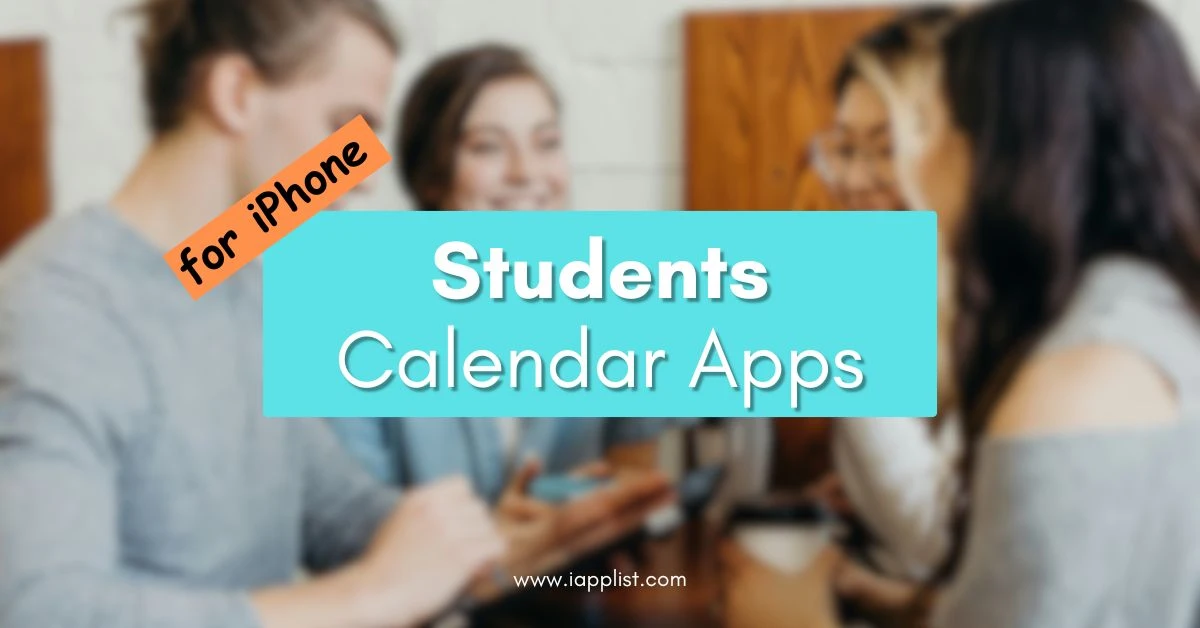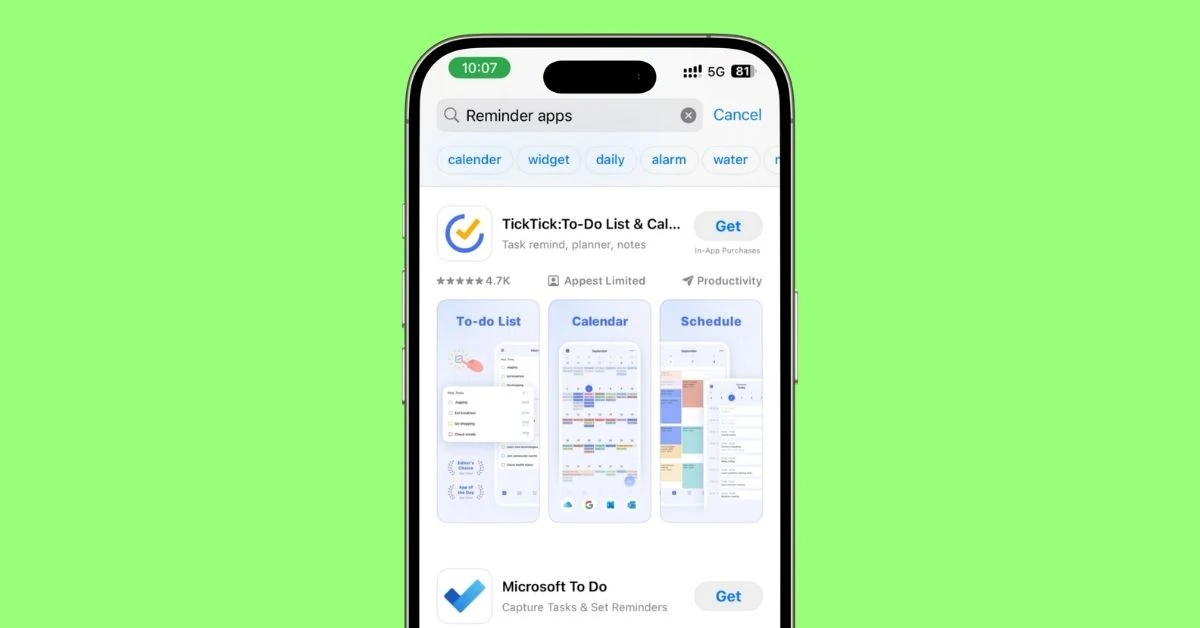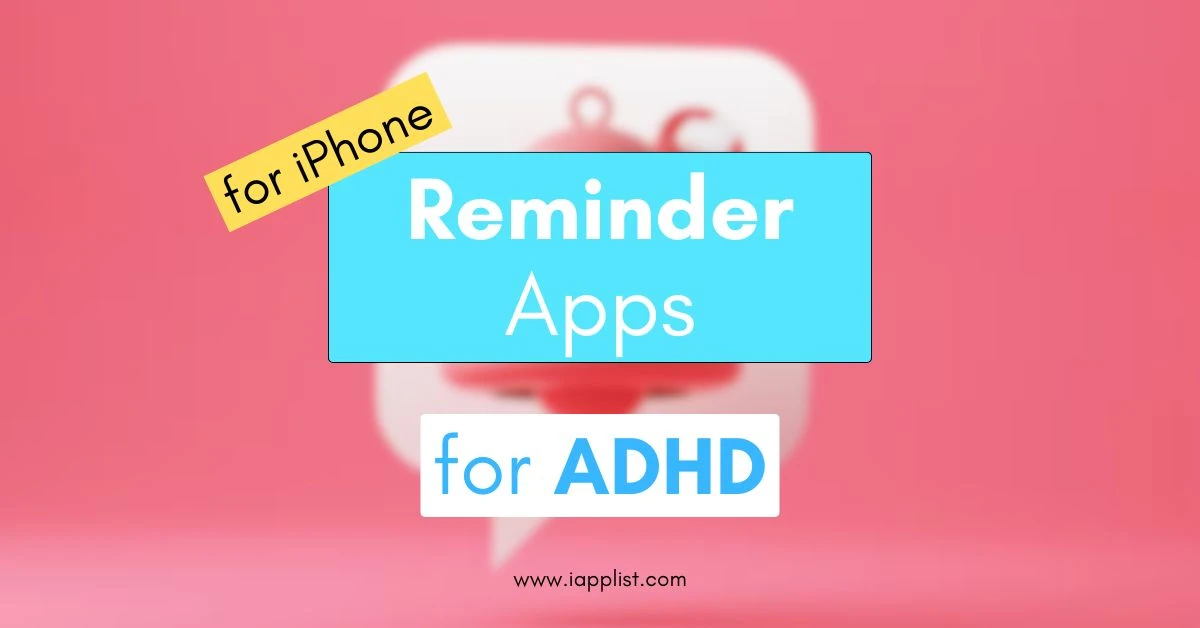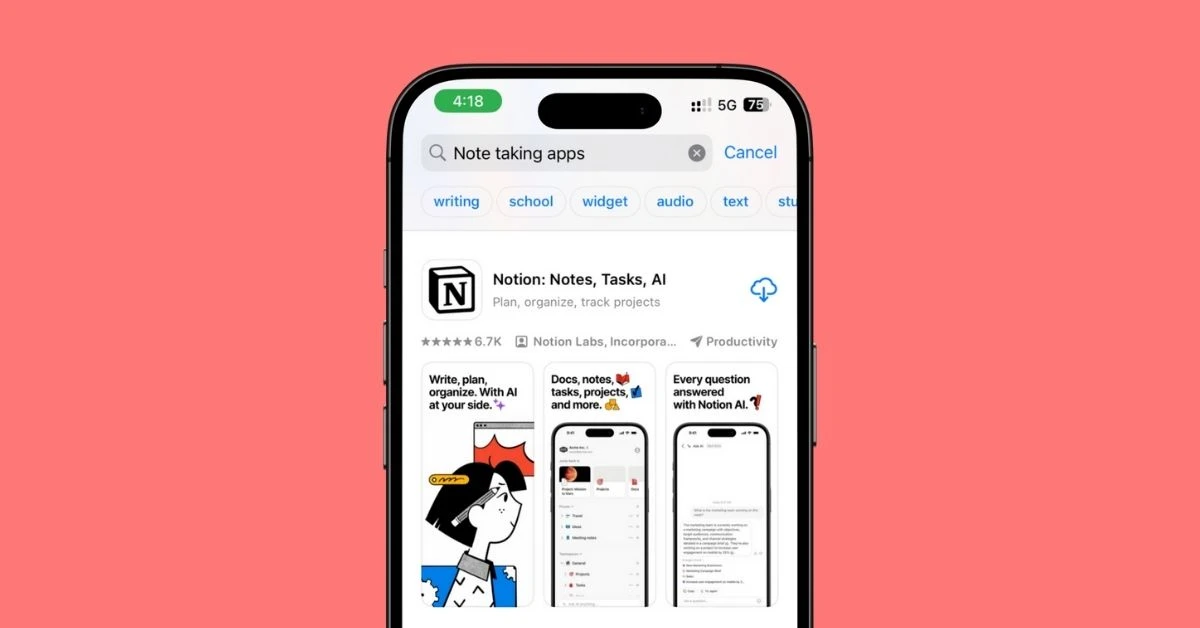27 Best Text to Speech Apps That Sound Natural
Imagine turning any article, PDF, or even your notes into something you can listen to while cooking, commuting, or just relaxing.
That’s exactly what text-to-speech (TTS) apps do.
They transform written words into natural-sounding voices so you don’t always have to sit and stare at a screen.
For some, TTS apps are a lifesaver—helping people with dyslexia, vision difficulties, or learning differences.
For others, they’re just a productivity boost.
You can catch up on study material, listen to your favorite blogs, or even generate voiceovers for videos without hiring a narrator.
The best part… You don’t need fancy equipment.
Whether you’re on iPhone or Android, there are plenty of powerful apps that make reading hands-free.
I tested and shortlisted 27 of the best text-to-speech apps available right now—ranging from free and simple readers to advanced AI-powered tools.
So, let’s dive into the apps that can make your phone talk in ways you’ll actually love.
1. Speechify
Speechify is one of the most popular text-to-speech apps out there, and for good reason.
It can instantly convert almost anything—articles, PDFs, web pages, emails—into natural-sounding audio.
What sets it apart is its library of realistic AI voices, some of which sound very close to real humans.
You can adjust speed, switch between different accents, and even scan physical books with your phone’s camera to turn them into audio.
Another big plus is the cross-platform syncing, which means you can start listening on your iPhone and continue right where you left off on your laptop or iPad.
While the premium plan unlocks the most lifelike voices, the free version is still powerful enough for everyday use.
Also Read: 27 Best Speech to Text Apps
2. NaturalReader
NaturalReader has been around for years, and it’s still one of the best choices for anyone who wants a reliable, easy-to-use TTS app.
The free version gives you access to decent voices and can read text from PDFs, Word files, and web pages.
What makes it special is the balance between simplicity and customization.
You can tweak pronunciation, add pauses, and save text as MP3 files to listen offline.
For students, it’s a great tool to convert notes into audio before exams.
For professionals, it can handle long reports or articles without breaking a sweat.
The premium tier adds more natural voices and cloud features, but the free app is already enough for most users.
3. Murf AI
Murf AI is more than just a text-to-speech reader—it’s a full-blown AI voiceover studio.
If you’re into content creation, this app can easily generate studio-quality voices for YouTube videos, podcasts, or even presentations.
It offers a wide range of realistic voices, with options for tone, pitch, and speed control, so you can fine-tune the narration to match your style.
Unlike basic TTS apps, Murf is designed with creators in mind—it even lets you add background music and sync with visuals.
While it’s not the cheapest option out there, the quality it delivers makes it worth it for professionals.
If you’ve ever wanted to replace robotic narration with something that sounds like a real person, Murf AI is a top pick.
4. Voice Dream Reader
Voice Dream Reader is a favorite among iOS users, especially in the accessibility community.
It’s built to help people with dyslexia or vision challenges, but honestly, it’s useful for anyone who wants a flexible TTS tool.
The app supports PDFs, Word files, ebooks, and even web articles.
You can customize everything—from voice and speed to text highlighting while it reads, making it great for learning and comprehension.
One of the strongest features is offline reading, so you don’t need to stay connected to use it.
While it’s a paid app, the quality of voices and the user-friendly design make it worth every penny for those who rely on text-to-speech daily.
5. Speech Central
Speech Central is a cross-platform app that works on iOS, Android, Windows, and macOS, which is perfect if you like to switch between devices.
It can handle articles, news feeds, PDFs, and eBooks, letting you create playlists to listen without interruptions.
What sets it apart is the ability to export audio files, so you can keep your favorite readings saved for later.
It also supports a wide range of languages, making it handy for bilingual users.
The app has a generous free tier, but the paid upgrade unlocks more natural voices and advanced features.
For anyone looking for a reliable everyday TTS solution, Speech Central is a solid choice.
6. RecCloud
RecCloud is a newer but powerful option in the TTS space, offering a clean design and high-quality AI voices.
It supports more than 90 languages and accents, making it one of the most versatile apps for global users.
You can upload documents, paste text, or even sync with your browser to listen to web content.
A standout feature is the ability to export speech to MP3 files, which is useful for offline listening or sharing.
RecCloud also works seamlessly across devices, so you can switch between your phone and computer with ease.
With its mix of free and premium options, it’s quickly becoming a go-to app for those who want natural voices without a complicated setup.
7. Voice Aloud Reader
Voice Aloud Reader is a simple yet effective Android app that can read aloud almost anything on your device—emails, web pages, documents, or even text copied to the clipboard.
It’s especially handy if you like multitasking, as you can just queue up text and listen while doing something else.
The interface is straightforward, with options to adjust reading speed, pitch, and voice.
What makes it stand out is how well it integrates with other apps—you can share content directly from your browser or a file manager into Voice Aloud Reader for instant playback.
It’s completely free with optional upgrades, making it one of the most accessible TTS apps for Android users.
8. iSpeech Pro
iSpeech Pro is a robust text-to-speech and speech-to-text solution that works across mobile and web.
It’s designed to deliver clear, professional-quality voices in multiple languages.
The app is flexible enough for personal use, like listening to articles or documents, but also powerful enough for businesses that need voice integration in apps or customer service.
One of its biggest strengths is the natural quality of the voices, which don’t sound robotic.
For users who want more than just a basic reader and need a scalable TTS solution, iSpeech Pro is a strong option.
It also offers cloud-based tools, which makes it a bit more advanced than typical standalone apps.
9. Speech Speaker Pro
Speech Speaker Pro is another option worth considering if you want a straightforward app that can handle everyday reading needs.
It comes with adjustable voices, bookmarking tools, and even a built-in dictionary, which makes it useful for students or anyone who wants more control over how their text is read.
The app supports multiple file types and can handle longer documents without lag.
While it may not have the flashiest interface, it’s dependable and functional, focusing on getting the job done.
For those who prefer a no-nonsense reader that still offers good customization, Speech Speaker Pro delivers.
10. Balabolka
Balabolka is a free Windows-based text-to-speech app that has been popular for years thanks to its versatility.
It supports a wide range of file formats like DOCX, PDF, EPUB, and HTML, so you can feed it almost anything to read aloud.
The voices depend on what’s installed on your computer, but you can also integrate high-quality voices from other providers if you want something more natural.
What makes Balabolka special is the extra control it gives you—you can tweak pronunciation, add pauses, and even save speech as audio files for later.
Despite being free, it offers features that rival many paid apps, making it a go-to option for desktop users who want flexibility without cost.
11. Panopreter Basic
Panopreter Basic is another Windows-only text-to-speech tool that keeps things simple.
It may not have the sleek design of newer apps, but it does the job well.
You can paste text directly into the app or open files like TXT, RTF, DOC, or HTML, and Panopreter will read them aloud in a clear voice.
One of its strengths is the ability to save speech as MP3 or WAV files, which is great if you want to listen offline or create reusable audio.
The app focuses on the essentials, so it’s a good fit for anyone who just wants a no-frills, reliable way to turn text into audio without any distractions.
12. Zabaware Text-to-Speech Reader
Zabaware Text-to-Speech Reader is an older but still useful option for Windows users who want something lightweight.
It can read aloud text from documents, emails, or any content you copy to the clipboard.
A neat feature is that it can even read out Windows dialog boxes, which isn’t something many apps can do.
The voices aren’t as advanced as modern AI-based ones, but they get the job done for basic use.
Zabaware also offers a paid upgrade with better voices if you want a more natural listening experience.
For quick and simple TTS tasks, this app is a handy little tool that still holds up.
13. ElevenLabs
ElevenLabs has quickly become one of the most advanced text-to-speech platforms out there.
It’s known for creating voices that sound almost indistinguishable from real humans, complete with natural tone, pacing, and even emotion.
The app is popular among content creators, educators, and developers who need high-quality voiceovers for videos, audiobooks, or podcasts.
It also supports multiple languages and even lets you clone your own voice, which is a game-changer if you want a personalized touch.
While it’s more powerful as a web tool, its mobile compatibility makes it easy to use on the go.
For anyone serious about lifelike AI voices, ElevenLabs is hard to beat.
14. Lovo.ai
Lovo.ai is another AI-driven text-to-speech app that shines in creativity.
Unlike basic readers, Lovo specializes in producing expressive voices that sound emotional and engaging, which is perfect for storytelling, marketing videos, or e-learning.
It offers a large library of voices in different styles, from casual to professional, and even lets you customize tone and speed to match the mood of your project.
It’s cloud-based, so you can access it on iPhone, Android, or desktop without hassle.
Many professionals use it as an alternative to hiring voice actors, making it a cost-effective option for producing high-quality content at scale.
15. Amazon Polly
Amazon Polly is a powerful cloud-based text-to-speech service built by Amazon Web Services.
It’s widely used by developers and businesses to add realistic voice capabilities into apps, websites, and customer service systems.
What makes Polly stand out is its wide language and accent support, plus its Neural TTS technology that produces very natural speech.
While it’s more of a developer tool, everyday users can also access it to convert text into audio for personal use.
Apps like Duolingo even rely on Polly for their voices.
If you’re looking for a scalable solution that’s trusted by big companies, Amazon Polly is a name worth noting.
16. eSpeakNG
eSpeakNG is an open-source text-to-speech engine that’s lightweight yet surprisingly powerful.
It supports dozens of languages, making it especially useful for multilingual users or developers who want a free TTS option.
While its voices are more robotic compared to modern AI-driven apps, it’s still widely used in assistive technologies like screen readers, including NVDA for Windows.
The app is highly customizable, and since it’s open-source, it continues to improve with community contributions.
If you’re looking for a reliable, free solution that works across platforms and emphasizes language support, eSpeakNG is a solid option to keep in mind.
17. Braina
Braina is more than just a text-to-speech app—it’s a personal AI assistant for Windows.
Alongside converting text into speech, it can perform voice commands, search the web, control applications, and even automate tasks.
It supports over 100 languages, which makes it versatile for global users.
The TTS function itself is straightforward, allowing you to paste in text or load files to be read aloud.
Braina is particularly useful if you want an all-in-one solution that goes beyond basic reading and helps boost productivity.
For those who like having both an assistant and a TTS reader in one, Braina delivers that mix.
18. Narrator’s Voice
Narrator’s Voice is a fun and popular TTS app, especially among Android users.
It lets you convert text into speech and then save the result as audio or even video files with voice narration.
A big reason it’s loved is the wide range of voices and the ability to add effects, making it perfect for social media content, memes, or creative projects.
You can also share the generated voice clips directly on platforms like WhatsApp or TikTok.
While the free version comes with ads, the features you get without paying are still impressive.
If you’re after a lighthearted, easy-to-use TTS app, this one’s worth trying.
19. Capti Voice
Capti Voice is a text-to-speech app designed with students and educators in mind.
It works well with documents, eBooks, and web articles, allowing you to listen while studying or on the go.
One of its strongest features is integration with cloud storage services like Google Drive, Dropbox, and OneDrive, so you can pull up files from anywhere.
It also supports highlighting and note-taking while the text is read aloud, which is a big help for comprehension.
Teachers often recommend Capti Voice for students with learning differences like dyslexia.
It’s available on both iOS and desktop, making it a versatile option for education and productivity.
20. Kurzweil 3000
Kurzweil 3000 is a well-known assistive technology tool that goes beyond just text-to-speech.
It’s designed to support people with learning difficulties, offering features like text highlighting, dictionaries, study tools, and comprehension aids alongside high-quality voices.
The app supports multiple file types, including PDFs and eBooks, and is widely used in schools and universities.
While it’s more expensive than most TTS apps, its educational value and depth of features make it worth it for students who need extra support.
For anyone looking for a complete learning companion that combines TTS with study tools, Kurzweil 3000 stands out as a premium choice.
21. ClaroSpeak
ClaroSpeak is a simple but effective text-to-speech app available on iOS.
It’s part of the larger Claro Software suite, which is known for accessibility tools.
With ClaroSpeak, you can paste in text, open documents, or type directly into the app, and it will read them back with clear, adjustable voices.
It also supports text highlighting while reading, which can help with learning and focus.
The app is lightweight and user-friendly, making it ideal for students or anyone who wants a clean, distraction-free TTS tool.
While it doesn’t come with all the advanced features of premium apps, its reliability and simplicity make it a solid pick.
22. Read Aloud (Browser Extension)
Read Aloud is a handy browser extension available for Chrome, Edge, and Firefox that instantly converts web pages into spoken audio.
It’s lightweight, easy to use, and perfect for people who spend a lot of time reading online articles, blogs, or study materials.
With just one click, you can have any webpage read to you in a natural-sounding voice.
It supports multiple languages and even offers premium AI voices if you want something more lifelike.
Since it works directly in your browser, you don’t need to install a separate app, making it super convenient for quick access to text-to-speech on the web.
23. Voice Aloud (iOS)
Voice Aloud is an iOS app that makes it easy to turn any text into speech.
You can copy and paste text, open files, or import web content to have it read aloud in a voice of your choice.
It’s designed for simplicity, with a clean interface that gets straight to the point—no clutter or unnecessary features.
The app also allows you to adjust speed and voice style, so you can customize the listening experience to your liking.
While it’s not as feature-heavy as some bigger names, its ease of use makes it a great everyday option for iPhone users who want a quick way to listen instead of read.
24. TextAloud
TextAloud is a long-standing text-to-speech tool for Windows that has built a reputation for reliability.
It can convert text from documents, emails, and web pages into natural-sounding audio, which you can either listen to right away or save as MP3 files.
This makes it perfect for creating audiobooks, study material, or voice notes.
The app offers a wide range of high-quality voices, including premium options for even more realism.
Professionals often use TextAloud for productivity, but it’s just as useful for students or casual readers who want hands-free access to their content.
It’s a paid app, but one that delivers solid value for the features it offers.
25. Google Text-to-Speech
Google Text-to-Speech comes preinstalled on most Android devices, making it one of the most widely used TTS tools by default.
It powers features like Google Translate’s spoken output and accessibility services such as TalkBack.
The app is lightweight and works across different apps, so you can have articles, messages, or books read aloud without needing to install anything extra.
While the voices are simpler compared to premium apps, Google has improved them over time, and they now sound much more natural.
Best of all, it’s completely free, which makes it a solid starting point for Android users who want a basic but dependable text-to-speech solution.
26. Apple Speak Screen
Apple’s built-in Speak Screen feature is one of those hidden iOS gems that many people don’t realize they already have.
By enabling it in the accessibility settings, you can swipe down with two fingers and have your iPhone or iPad read aloud whatever is on the screen—whether that’s a webpage, an ebook, or even a message.
It supports different voice options and speeds, and since it’s a system feature, it works seamlessly across all apps.
For iPhone users, this is a fantastic free alternative to paid TTS apps, especially if you just need simple, reliable speech output without downloading anything extra.
27. Microsoft Azure Text-to-Speech
Microsoft Azure Text-to-Speech is a cloud-based service that’s part of Azure Cognitive Services.
It’s geared more toward developers and businesses, but everyday users can also take advantage of it through apps that integrate Azure’s voices.
What sets it apart is the high-quality Neural TTS voices, which sound impressively human and expressive.
With support for multiple languages and accents, it’s used in everything from customer service bots to accessibility apps.
While not a standalone consumer app, its technology powers many third-party TTS tools, making it one of the most influential platforms in the space.
For anyone interested in cutting-edge voice AI, Azure TTS is worth noting.
My Final Take
Text-to-speech apps have come a long way from robotic voices to AI-powered narrators that sound almost human.
Whether you’re a student who wants to listen to study material, a professional who needs to multitask, or someone who simply prefers hearing content instead of reading, there’s an app for you.
If you’re looking for a well-rounded everyday app, Speechify is the easiest to recommend.
For education and accessibility, Voice Dream Reader and Kurzweil 3000 stand out.
And if you’re into content creation with lifelike AI voices, Murf AI or ElevenLabs are game changers.
At the end of the day, the right app depends on what you need—simplicity, creativity, or accessibility.
The good news… With these apps, you’ll definitely find one that feels like the perfect fit.
FAQs
What is the best free text-to-speech app?
Google Text-to-Speech (Android), Apple Speak Screen (iOS), and NaturalReader are all strong free options.
Which app has the most natural voices?
ElevenLabs, Murf AI, and Lovo.ai currently lead the way with realistic AI-generated voices.
Can text-to-speech apps work offline?
Yes. Apps like Voice Dream Reader, NaturalReader, and Balabolka allow offline use.
Are these apps good for language learning?
Definitely. Many of them, like Speech Central and RecCloud, support multiple languages and accents, which helps with listening and pronunciation.
Do text-to-speech apps support exporting audio?
Yes. Apps like Speech Central, RecCloud, and TextAloud let you save audio as MP3 or WAV files for offline listening.






